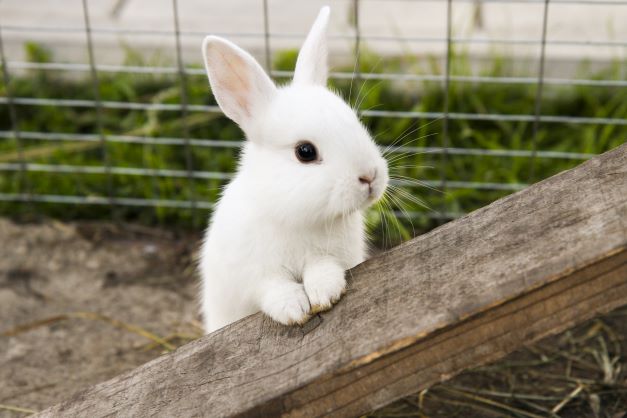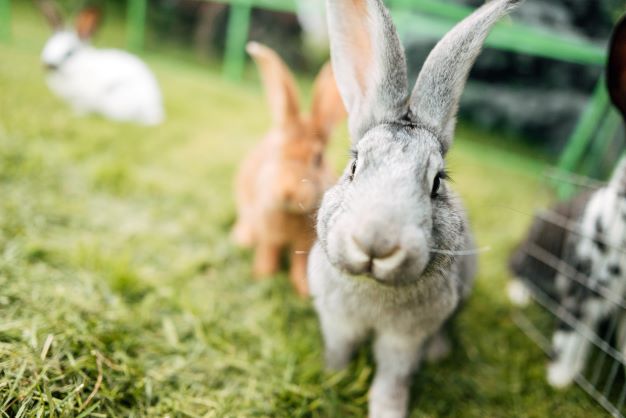The last 12 months have been tough for everyone, but we’re starting to see the light at the end of the tunnel now. Over the course of the last eightee
The last 12 months have been tough for everyone, but we’re starting to see the light at the end of the tunnel now. Over the course of the last eighteen months, you may have had to worry about your jobs and family finances. You may have been placed on furlough, made redundant, or continued to work with the constant fear that your employers would be one of the many businesses that folded under the weight of the pandemic. You may have had to worry about our family’s health constantly, from making sure that everyone was washing their hands and wearing a mask to hoping that the appointments we had made for non-COVID-related health issues would still go ahead. You may have cancelled holidays, rescheduled weddings, kept up family and friends via Zoom, and anxiously made your way through a string of lockdowns and new variants.
And, of course, the pandemic may have had an impact on how we handled and thought about our pets. Any animal-owner and anyone who was thinking about getting a pet during the pandemic may have been through something of an emotional wringer as there have continued to be wrinkles and worries that have popped up since March 2020. Cat owners may have worried about whether their pet could carry COVID-19 back from its morning wander around the neighbourhood. People with dogs may have had to think about how to get the most of their morning walkies when time out of the house was so limited. Rabbit owners, and every other pet owner, may have had to follow Coronavirus guidelines at the vet which may have meant that many owners could no longer go in with their pet to the treatment room.
Thankfully, things do finally seem to be turning a corner out there. We are finally seeing signs of real progress as vaccines roll out and infection numbers start to go down (at the time of writing). Places of business are reopening, but we may still be living in a somewhat uncertain stage of the new normal. If you are wondering about rabbit ownership in a post-pandemic world, here are just a few of the ways that people are adapting.
Things At The Vet May Not Be Quite Back To Normal
As we mentioned, taking your rabbit to the vet during the pandemic may have had an added element of stress. Many vet practices asked that pet owners wait outside while the vet performed a check-up on their animal. Now, some people prefer not to be in the room with their pet while the vet gives them a once-over, but the rest of us like to be there to offer comfort and support during this stressful time. With restrictions rolling back, many vet practices are now allowing people to come back inside.
However, you may want to check their website and call ahead to find out what restrictions they still have in place. You may be asked to wear a mask and keep your distance from the staff and other visitors. Think about taking hand sanitiser with you. It may also be the case that some practices may ask that only one owner comes in with the animal.

Can You Support Your Pet?
One of many people’s primary causes for concern throughout the pandemic has been security. It can be hard to commit to a big life change such as adopting a pet when you are worrying about whether you are still going to be in your job in a few months’ time. If you might have to move house. If you are going to be out of the house at different hours of the day and you might not be able to keep to a routine. You may very well decide that you would like to be in a stable position before you adopt a pet, and stability has certainly been hard to come by over the last eighteen months.
However, with things going back to something approaching normal, this could very well be the right time to think about bringing a new animal into your family home. If you are worried about stability, important factors include knowing that you are going to have enough time in your day to care for a pet. Rabbits can require a lot of care and attention.
Are you going to be able to stick to regular feeding times? Will you be able to clean their environment once a day? Will you be able to make time to take to the vets in case of an emergency? When we were working from home, we could keep an eye on our pets all day. Now, many companies may be asking that people go back into the office. If not every day, then for at least a couple of days a week. You may want to ask yourself if you are comfortable leaving your animal unattended for that long, and you may want to make sure that you change your routine to accommodate those extra hours out of the house.
Another important factor may be knowing that you are covered in case the rabbit needs vet treatment. Rabbit insurance quotes are available if you’re thinking about covering your rabbit, and you can choose from different levels of coverage depending on what you feel comfortable with. Everypaw’s rabbit insurance can be taken out between the ages of 8 weeks to 5 years, and they offer policies that should keep them covered into their old age. You just need to keep your rabbit insured with them without a break.
Can You Offer Your Rabbit Enough Space?
A home with enough space, particularly outdoor space, has been on everyone’s minds during the course of the pandemic, as evidenced by the surge in demand for houses outside of London and other major cities. Space could be a big consideration if you are thinking of adopting a rabbit. You may be asking yourself: can I keep them inside?
The RSPCA guidelines say that rabbits can be kept indoors, and that there can be some benefits as it may strengthen the bond between the animal and the owner, as well as allowing you to notice any health issues sooner. However, if the rabbit has previously been an outdoor animal, then bringing it inside may cause it stress. The question really boils down to two points: every rabbit is different, and you cannot know for certain that it will be happy living indoors, and if it does live indoors, think about giving it enough space.
Rabbits are very active animals, and they like to run and dig. The easiest way to provide that environment for them may be by building the space outdoors in a garden. In a post-pandemic world, finding a property with enough green space to accommodate that may be easier said than done. If you are thinking of adopting a young rabbit or a rabbit that has previously lived outdoors, then you may want to think about finding a home with enough room first. A rabbit’s house should be around four to six times the size of the rabbit, so you may want to think about where you may be able to fit their enclosure as well as giving them room to run around.



















































































































COMMENTS